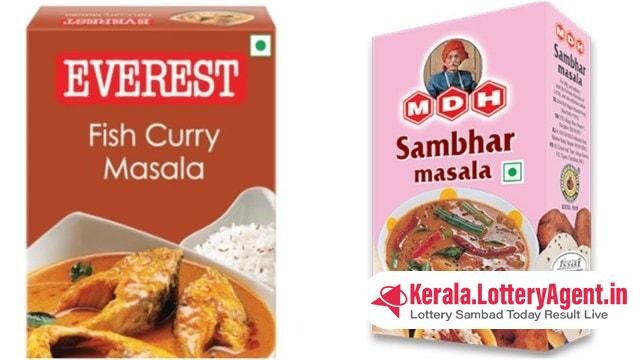
A recent clampdown on food safety has led the Hong Kong government to initiate a ban on four spice mix products crafted by the Indian companies MDH Pvt. and Everest Food Products Pvt. The decision came on the heels of a concerning discovery by the Centre for Food Safety (CFS) of the Food and Environmental Hygiene Department. On April 5, a press release from the department alerted consumers and traders to the presence of a notable pesticide, ethylene oxide, in samples of prepackaged spice products.
The products in question include MDH’s Madras curry powder, sambhar masala mixed masala powder, and curry powder mixed masala powder, with Everest’s fish curry masala also on the list. Interestingly, this is not a concern isolated to Hong Kong. Singapore’s own food safety authority, the Singapore Food Agency (SFA), has voiced similar apprehensions and ordered the recall of Everest’s fish curry masala. On April 18, the SFA cited the detection of ethylene oxide beyond acceptable levels for human consumption. Sp Muthiah & Sons Pte. Ltd., the importer in Singapore, is in the process of conducting a product recall.
The CFS’s actions are part of their routine Food Surveillance Programme wherein samples were taken from various retail outlets located in the bustling Tsim Sha Tsui district for comprehensive testing. The findings revealed the worrisome presence of ethylene oxide, leading CFS to immediately inform the affected vendors. These vendors were then mandated to cease the sale and withdraw these products from their shelves posthaste.
Ethylene oxide’s hazard is not to be underplayed; the International Agency for Research on Cancer has solemnly placed the chemical in Group 1, confirming it as a known carcinogen. The legal ramifications are rooted in the Pesticide Residues in Food Regulation (Cap. 132CM), which unequivocally states that any food determined to possess pesticide residue can only be marketed if it poses no tangible danger or adverse health effects upon consumption. Ignoring these regulations invites severe consequences. Violators face punitive measures, including a maximum fine of $50,000 and potential incarceration for up to six months if convicted.
This stumble has not only prompted urgent regulatory response but also shines a light on the complex web of global food trade and safety standards that countries navigate continually. Ethylene oxide, often used as a sterilizing agent, is banned in agricultural products for human consumption within the European Union and other countries due to its toxicity and carcinogenic properties. Yet, disparity in international food safety standards can lead to such incidents where products deemed unsafe in one country manage to enter the markets of another.
The immediate health risks to consumers are obvious, but there are broader implications. Food safety controversies like this can affect the reliability and integrity of international brands, disrupt the intricate supply chains, and most critically, undermine public trust in safety oversight mechanisms. The ban imposed by Hong Kong and the subsequent recall in Singapore are stark reminders of the vigilance required to keep the global food supply safe. They also raise an alarm about the need for harmonized food safety regulations to prevent similar public health hazards in the future.
In the wake of this revelation, consumers are advised to remain vigilant and informed, ensuring the items they purchase meet the requisite safety standards. It is clear that food safety does not merely depend on the watchfulness of regulatory bodies but also on the informed decisions of each consumer. As the affected products are pulled from the shelves, and the necessary legal actions are taken, the incident is a potent reminder of our shared responsibility in the global food safety ecosystem.












